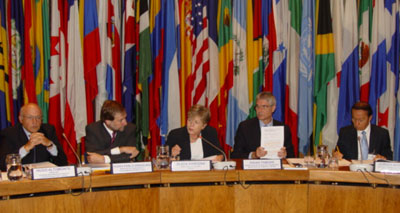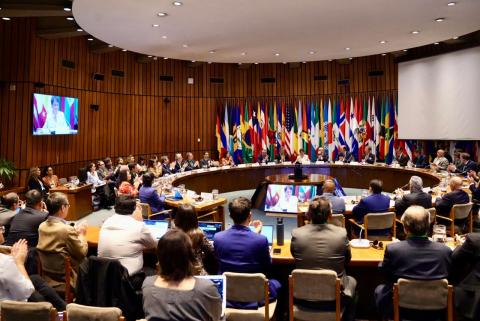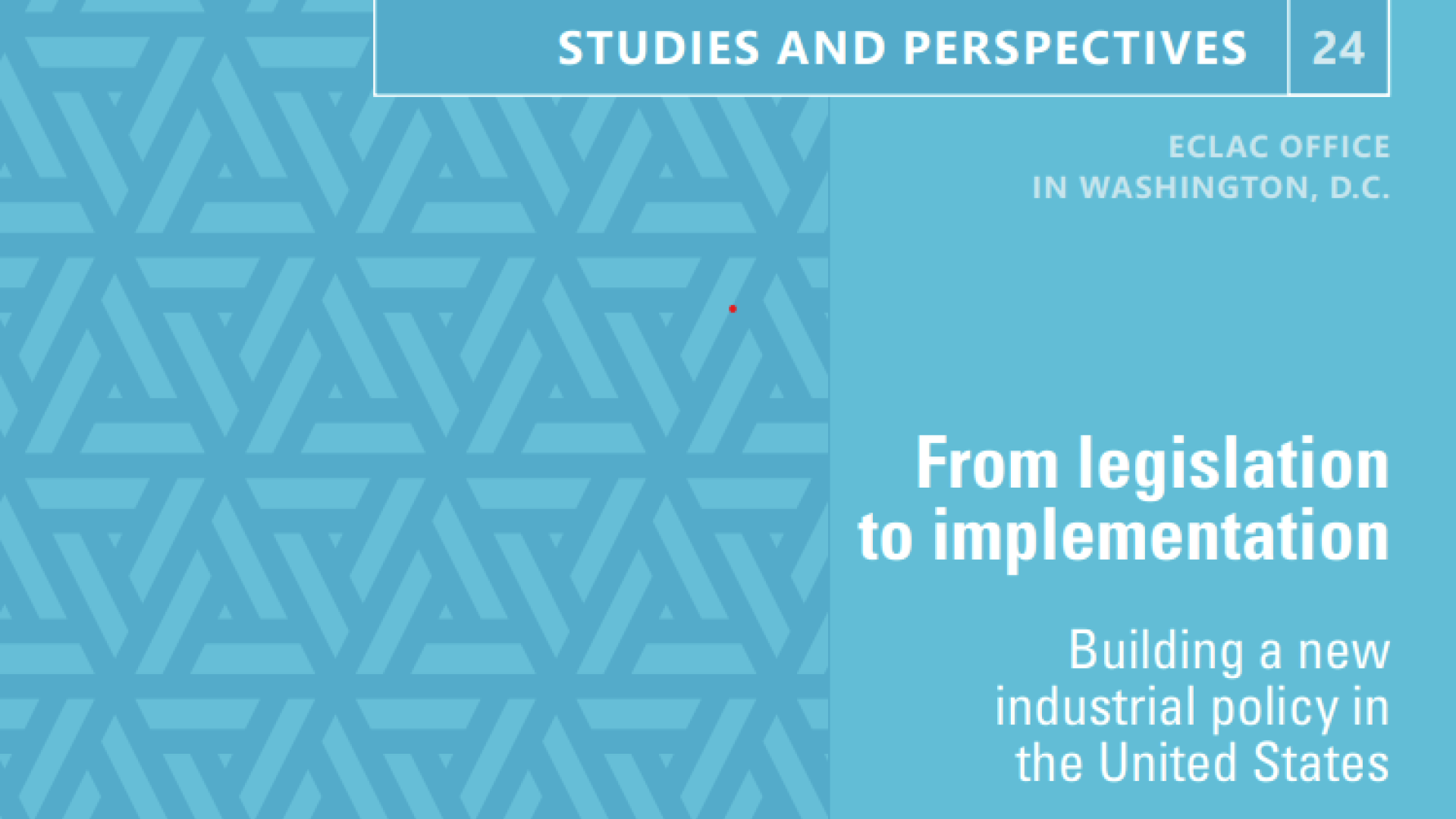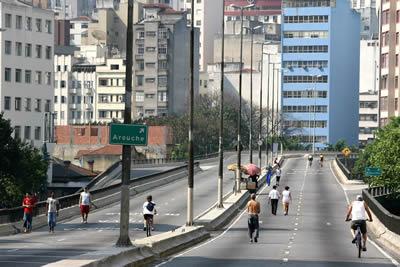News
(14 November 2011) During a meeting today at ECLAC headquarters in Santiago, Chile, authorities and experts in the area of transport stated that the future development of Latin America and the Caribbean requires a strategy for developing integrated and sustainable policies for infrastructure, logistics and transport.
During the Seminar of high-level government experts: Full development and transport policies in Latin America, organized by the Economic Commission for Latin America and the Caribbean (ECLAC), Ports of the State of the Ministry of Development for Spain and the Spanish Agency for International Development Cooperation (AECID), the participants analysed the impact of infrastructure policies on economic and social development in the countries of the region and they outlined the main challenges in this area.
During the opening of the meeting, the Executive Secretary of ECLAC, Alicia Bárcena, stated that the economies of the region have grown at a good rate. However, she warned that the crisis in developed countries raises fear of a slowdown for 2012.
"For this reason, now is the right time for long-term development policies which include the effective provision of infrastructure services, particularly transport, since they set the level of productivity and competiveness of economic players, industries and economies, as well as the standard of living for people," she stated.
She explained that investment in the region is currently lower than 20% of its gross domestic product (GDP), when ideally it should be between 26-27%. Investments of 5% of annual GDP, specifically in infrastructure, are required to provide adequate services and close the existing gap. To do so, a modern, efficient, comprehensive and sustainable sectoral policy is required.
"We suggest a new State-market-society balance for which we must develop integrated and sustainable public policies for logistics and transport, not exclusively linked to a body, but rather channelled through institutions," stressed Ms. Bárcena.
The Minister of Transport and Telecommunications for Chile, Pedro Pablo Errázuriz, emphasized the importance of "connectivity" as the central feature of transport and infrastructure policies in the countries. "Public transport is the key to economic development. Growth needs a good transport system," he said.
The Minister of Public Works, Transport, Housing and Urban Development of El Salvador, Gerson Martínez, stated that in the case of Central America there is an additional challenge which affects infrastructure and transport: extreme weather events.
"A comprehensive strategy is needed to deal with climate change," stated Mr. Martínez, who is also President Pro Tempore of the Council of Ministers of Transport of the Central American Integration System (SICA). "Central America needs a structured policy for logistics, transport and ports between the countries," he stressed.
The Secretary of State of Transport, Spain, Isaías Táboas, commented on the Spanish experiences in the development of infrastructure and transport, and placed emphasis on the finance mechanisms which can be used. "There is an economic recession in Europe therefore we will have fewer resources for dealing with continually growing demands in our societies. We must seek new sources of financing, involving the private sector and perhaps also the users," he advised.
Any queries should be addressed to the ECLAC Public Information and Web Services Section.
E-mail: dpisantiago@cepal.org; Telephone: (56 2) 210 2040.
Follow us on: Twitter, Facebook, Flickr and YouTube.



